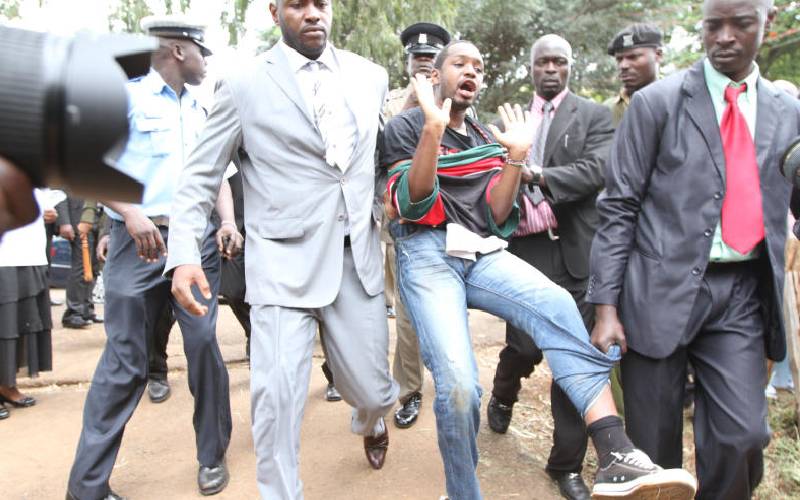×
The Standard e-Paper
Join Thousands of Readers

Activist Boniface Mwangi is arrested after he interrupted Labour day celebrations at Uhuru Park.[File,Standard]
“Chief, you don’t tip?” remarked Boniface Mwangi as I handed back the cash pouch to the waiter. Always unconventional, Boniface Mwangi was either asking a question or making a statement.